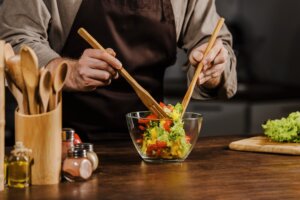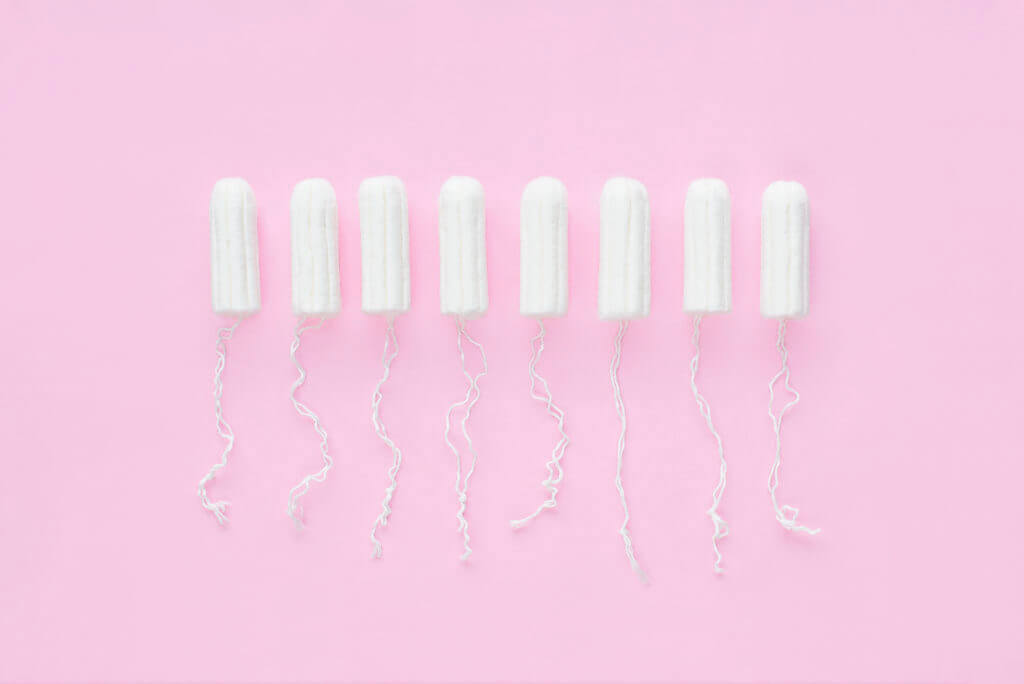If you’ve ever been lucky enough to find yourself in the bathroom at, say, a nice gym, a spa, or a GYNO’s office only to notice there are free tampons up for grabs, does your heart flutter a little? Ours do, too. Not only is offering free hygiene products an act of sheer decency (since tampons should really be considered everyday items like tissues or hand sanitizers are), but it also serves as a big middle finger to the “pink tax” that people who menstruate typically have to contend with.
This is at least partially due to the fact that by not talking about (much less offering) products like pads and tampons, society essentially overlooks menstruation because some find it to be gross or shameful to discuss openly. (Remember how pad commercials used BLUE liquid because god forbid the fluid actually resemble blood? The horror!) There are also concerns involving period poverty and various socio-cultural beliefs surrounding menstruation that encourage many to hide this very natural process from others.
God forbid someone who has their period simply needs a sanitary product?
Many of us have been taught to dance around the issue, bravely whispering to friends, “Do you have a tampon?” and then creeping away toward the bathroom, our heads down like we’re holding something super illegal under our shirt or up our sleeves.
[fm_twitter url=”https://twitter.com/NPR/status/1137841836314128391″]
But we have some good news.
According to Bust, for the first time one town in the US is taking a huge step toward equality.
Brookline, Massachusetts, is stepping up to be the first municipality to provide both free pads and tampons in every single city-owned restaurant.
[fm_twitter url=”https://twitter.com/NationGHHS/status/1137797309192912903″]
Regardless of gender identity, people will have easy access to free period products all over town. In addition, every restroom in Brookline buildings will offer them.
[fm_twitter url=”https://twitter.com/Broken_Token/status/1138024681666228224″]
The legislation (championed largely by legislator Rebecca Stone) fully goes into effect in 2021…
…But hopefully some restaurants will start early (hint, hint?).
Before Stone got involved, it was a student by the name of Sarah Groustra who got the wheels turning on the legislation when she wrote a column in the Brookline High School newspaper.
[fm_twitter url=”https://twitter.com/_RebeccaStone_/status/1137916965048279041″]
She writes, “For instance, most people would balk at the idea of having to pay for toilet paper in a public restroom. Tampons and other menstrual sanitation products, however, are not considered essential. We would respond with similar agitation if toilet paper were provided for free, but was located two floors away from the bathroom.”
[fm_twitter url=”https://twitter.com/Grace4NY/status/1138586965346066437″]
She continues to explain that even if there are sanitation products offered, say, at the nurse’s office at schools, it can be hard to get out of class and get to the nurse’s office.
It’s also the matter of having to ask and go out of your way to get something that you should have easy access to.
As Bust puts it, “Menstrual equity is a class issue, with The Huffington Post predicting that the average woman will spend $18,171 on period products (tampons, pads, pain medication, etc.) during her life. In 35 states, tampons are legally considered a ‘luxury,’ and therefore not exempt from sales taxes, while Viagra, considered a healthcare product, does not have the added charge.”
[fm_instagram url=”https://www.instagram.com/p/Byo_kX9gBog/”]





